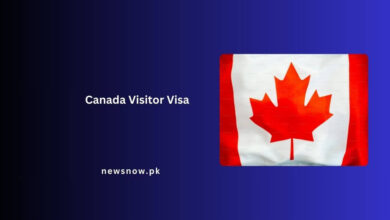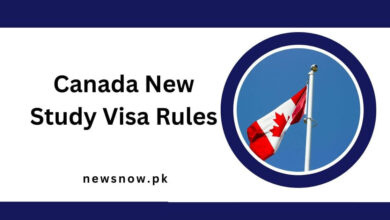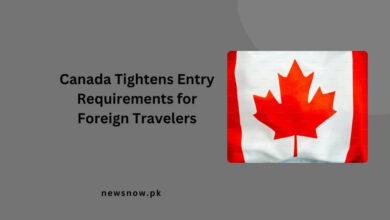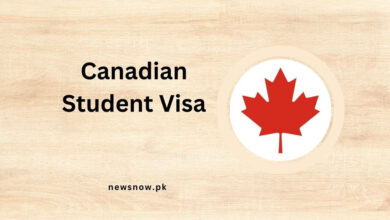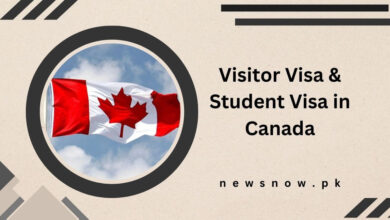Canada Visitor Visa & Tourist Visa 2025 – Visa Update
As 2025 develops, Canada is among the most sought-after travel destinations worldwide. Understanding how the most recent changes to the visa application process—which include expedited processing times and biometric requirements—may affect your trip plans is vital.
This blog will go over the most current developments in Canada’s visitor and tourist visa policies, what to expect once biometrics are completed, and how these changes may impact your trip to Canada.
Introduction:
If you plan to see friends and relatives or travel around Canada, getting a Canada tourist or visiting visa can be very necessary. Many candidates, especially those who have turned in their biometrics, are unsure, nevertheless, while they wait for their visa application findings. The rules and processing times for Canadian visas have changed for 2025; so, it is crucial to keep informed to prevent needless delays or problems with your travel plans.
One common concern is what happens if the anticipated travel dates of an application fall before their visa is issued. Many visitors are not sure whether to alter their plans or how their visa application could be impacted should their intended visiting reason expire.
This advice will cover more specifically what to expect following the submission of your biometrics, how to handle delays, and what to do should your flight itinerary change.
The Importance of Purpose of Visit:
Your visa application’s most crucial component is the reason you are visiting. This section details your trip plans—business, leisure, and family visits among other things. The immigration officer’s view that the applicant’s reason for traveling is inadequate or that there is a likelihood the applicant won’t return home following the visit drives most application denials.
Your application needs to contain a clear, legitimate use for your trip if you want it granted. If you plan to spend 10 days in Canada, for example, be sure your financial records show you have sufficient income to cover your vacation.
If at least some savings or available money exist, trip expenses could be included in a well-balanced budget. This indicates that you will not become a financial burden on Canada and that you can afford to keep yourself going while on travel.
Adjusting Your Travel Plans:
Should your departure dates approach or have already gone, you might choose to change your trip plans. This is vital if you are rushing for a visa, say you have to see a family member in Canada for medical treatment. Under these circumstances, you can use the online form to seek accelerated processing together with supporting documentation, therefore outlining your position. These might be medical records or a letter from a Canadian doctor.
If your vacation plans are not urgent, it is usually advisable to wait until your present one ends before making any changes. Immigration, Refugees, and Citizenship Canada (IRCC) makes very evident that applicants do not have to provide extra documentation unless specifically requested. Should you have to change your travel plans, be sure to add two or three months to your intended departure date and itinerary?
Updated hotel bookings, plane tickets, and a reason for the change of course must be turned in. If your original intentions were to travel in the summer and your visa is delayed, for instance, you might postpone your vacation for Christmas or another future holiday. Remember that your visa application might not always be denied only because your original trip schedule has expired.
Over the COVID-19 epidemic and even into 2025, there have been many cases of applicants getting visas even after their planned travel dates had gone.
Check Also: Driver Jobs in Canada – Visa Sponsorship
Benefits of Canada Visitor Visa & Tourist Visa:
- Discover Canada’s varied landscape and culture: Canada boasts vivid cities as well as breathtaking natural beauty. From the Rocky Mountains to cosmopolitan cities like Toronto and Vancouver, a visitor visa lets you see varied cultures, landscapes, and attractions.
- Flexibility During Short-Term Stays: Usually allowing stays of up to six months, visitor visas provide travelers enough time to explore and enjoy their vacation without feeling hurried.
- See friends and family: Those with a guest visa can visit friends or relatives residing in Canada, therefore developing ties and enjoying Canadian hospitality.
- Access to Several Attractions: National parks, historical sites, museums, and cultural events abound in Canada among other attractions. One can enjoy these experiences with a visiting visa.
- Attend Events and Activities: A rich cultural experience is made possible by Visa holders’ participation in concerts, sporting activities, and festivals among other events.
- No Employment Restrainments: Visitor visas let people enjoy their time free from the pressure of job responsibilities, but they do not allow working.
- Easy Procedure of Application: Usually simple, the application process for a tourist visa is guided by Immigration, Refugees, and Citizenship Canada (IRCC) with clear criteria.
- Limited Processing Times: Many applications for visitor visas are handled rather rapidly, allowing visitors to make travel plans free from significant wait times.
- Prospects for upcoming immigration: Visiting Canada on a tourist visa could provide insights into the nation and assist people in determining whether they wish to seek permanent residence or another immigration route down the road.
- Look at Business Prospectives: Although visiting visas do not enable employment, people can investigate business prospects without working by attending trade exhibitions, seminars, or corporate meetings. Canada is well-known for being family-friendly, with many of events and attractions for couples heading with kids.
- Safety and Wellness Guidelines: The high health and safety requirements of Canada help to provide a safe environment for visitors.
- Help from Local Communities: Many parts of Canada feature friendly communities that help and support guests, therefore improving the vacation experience.
Conclusion:
Navigating Canada’s tourist and visitor visa application process in 2025 will need both close attention to detail and patience. Since biometric criteria and processing times often span beyond your expected trip dates, keep yourself informed and ready for any possible delays.
Make sure you completely change your travel plans and, should you need to, provide the necessary proof to avoid any problems. Following these rules will help you ensure that the application procedure runs easily and effectively, relieving you of unnecessary worry so you may enjoy your trip to Canada.
Navigating Canada’s visitor and tourist visa application process in 2025 may appear challenging with ongoing changes and revisions. Knowing the most recent processing timeframes helps you, especially after biometric submission, to better plan your trip. Even if Canada welcomes visitors from all around the world, knowing about these crucial operations will help to guarantee that your trip runs as best as possible.
Follow us on Newsnowgh.com to keep informed on the most recent developments on work permits, visa application procedures, routes to permanent residency, and visa-sponsored employment.
For More Info:
Email Your CV, and We’ll Find the Best Pathway For you: info@newsnow.pk
Frequently Asked Questions:
Are tourist visas and visitor visas the same for Canada?
A Canada visitor visa is an official document that enables foreign nationals to briefly visit Canada. Another name for it is Temporary Resident Visa (TRV), or Canada tourist visa. Your tourist visa shows that you satisfy all the criteria needed to enter Canada temporarily.
Is a tourist visa the same as a visit visa?
Although they are used synonymously most of the time, these words have different connotations and applications. The main distinction is that, depending on national policies, visiting visas are typically valid for a longer period—up to six months or more—while tourist visas typically expire after three months.
What is the difference between a visitor record and a visitor visa in Canada?
A visitor record is a documentation that allows for extended stays in Canada. It does not ensure your ability to leave and subsequently return to Canada. Should you intend to travel outside of Canada or the United States, you must have a current valid entry document—such as an eTA or a visitor visa—to return to Canada.
